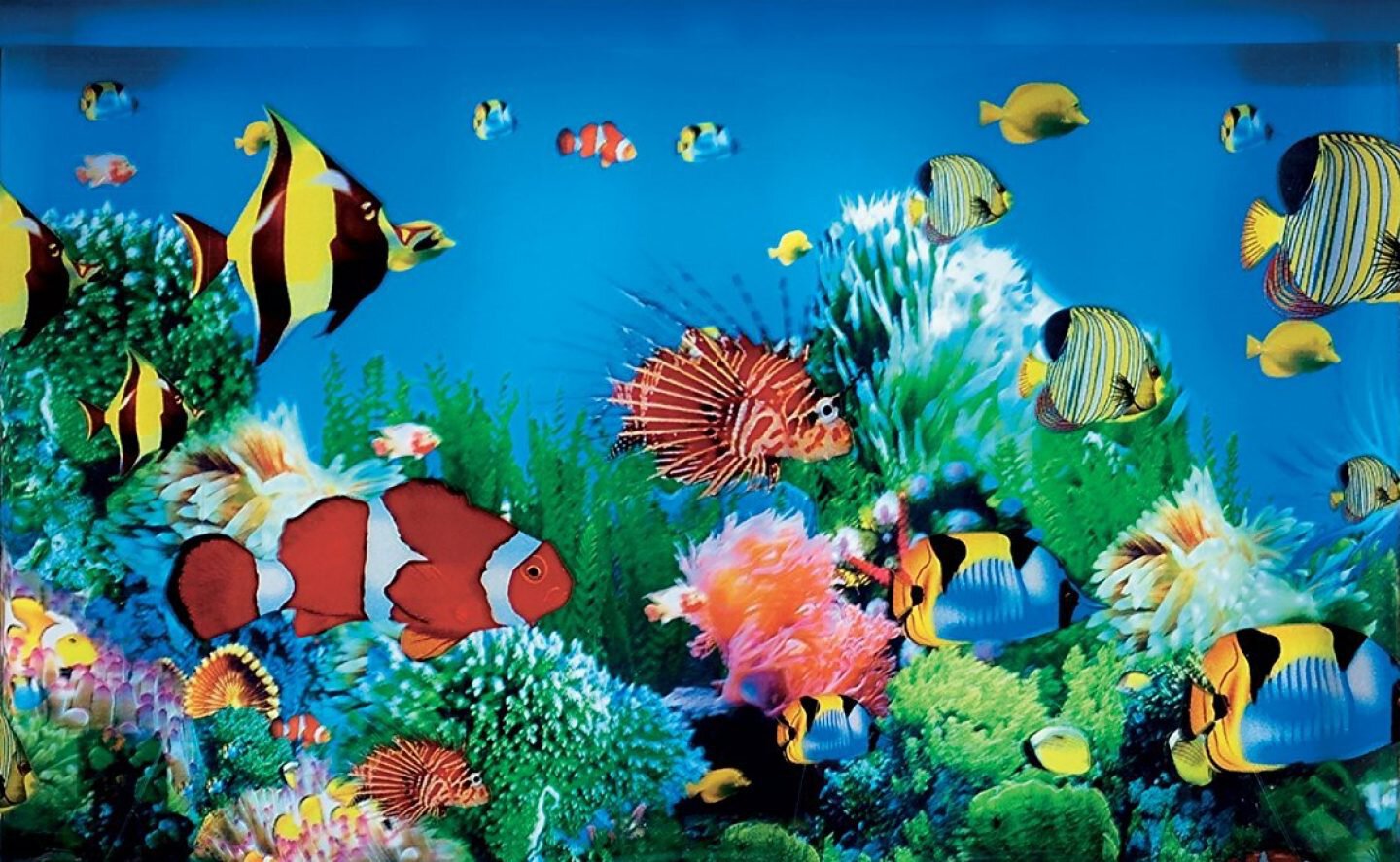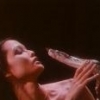-
Content Count
2,313 -
Joined
-
Last visited
Reputation Activity
-
forkpt1 liked a post in a topic by sparklrtrailrheaven in TROPICO: Review (by sparklrtrailrheaven)
For my English 111 class, we had to do a film review-- for a variety of reasons (partially because I love Lana, partially because I felt it would be a creative choice, partially because I was almost out of time), I chose to review Lana's iconic 2013 music video/short film TROPICO. Below is my review! I don't believe it's my best work, especially since it was rather last-minute, and I may have been a bit harsh on the film, but here it is, regardless! Please tell me what you think of the review, and I'd love to hear your thoughts on the film as well!:
Film Review: Tropico “And the spirit of John moved upon the face of the waters. And John said, Let there be light: and there was light. And John saw that it was good.” This quotation, a reconfiguration of a familiar verse from the Holy Bible, begins Lana Del Rey’s short film, Tropico. From this point on, the film is positively rife with symbolism, metaphor, and similar appropriation of visuals, quotations, and iconography, all feeding into a biblically-inspired tale of “sin and redemption,” as Del Rey called it at the film’s theatrical premiere. Scored by selections from Del Rey’s 2012 extended play Paradise, and interspersed with scenes of dialogue and spoken-word poetry, the film is a sonic and visual feast. However, in spite of Del Rey’s use of stunning visuals, music, and such high-arching allegory and philosophy, viewers are left wondering if the film means anything at all, or if the twenty-seven minute short is anything more than an extended music video. Tropico opens with scenes of beginnings and creation: primordial, kaleidoscopic waters rush and fold into one another, stars flash brilliantly and are born in space, a sun rises, a rose opens, and clouds roll through a glowing sky, all against the aforementioned Bible verse. A figure representing John Wayne seems to preside over the affair, and Del Rey, dressed as the Mother Mary, prays feverently that he shall forgive her of her sins. Moving to a neon-colored Garden of Eden, Wayne is joined by Elvis Presley, Marilyn Monroe, and Jesus, along with Del Rey and her consort, Shaun Ross, garbed as Adam and Eve. Here begins a strange meld of Del Rey’s own passions: familiar images from the bible-- creation, the holy mother, Eden, Jesus-- are mixed and assimilated with images decidedly familiar to American culture: the cowboy, the rockstar, and the bombshell, all icons and superstars in the USA’s media-heavy society. Their voices fade in and out, spouting out catchphrases (Monroe quips: “Sex is a part of nature… and I go along with nature!”) amidst heavy radio frequency, heightening the surrealistic nature of Del Rey’s land of pop culture and spirituality. Tropico’s story continues as one would expect: Adam and Eve, entranced by a serpent in the garden, eat the forbidden fruit and are cast out-- however, this new-age Adam and Eve land in Los Angeles, and their downfall is depicted as Del Rey reads excerpts of Walt Whitman’s poem I Sing the Body Electric. Del Rey and Ross’ Eden quickly dissolves into various scenes of squalor and ennui-- a seedy strip joint, a dingy supermarket, a tacky mobile home. Before long, the low-income, low-class lovers tire of and abandon this drudgery, clashing with their more affluent neighbors as Adam and a gang of thugs break into a penthouse hosting a party of wealthy men (and their female entertainment), sealing their place in history as God’s wayward children, well-meaning man and woman who took the path most clearly presented to them, even when it was the wrong choice. Here is one of the few times it feels Tropico really hits its mark: perhaps, it makes one consider, the sensationalized gangsters and “thugs” that run rampant in modern media are nothing more than confused children, the “good kids” driven bad by desperation, or a lack of options. Del Rey’s music, described by one interviewer as “dreamy and dramatic, soaked in Americana and nostalgia, spiked with glamorous violence and loopy nonsensicality,” fits right in with this vision of the American Dream gone dark. After Tropico’s Adam and Eve hit this point, the lowest of low, the only choice left seems to be absolution. Del Rey croons her song “Bel Air”, with its refrain of “I don’t wanna be bad, I won’t cheat you no more,” as Adam and Eve are baptized and reborn, watched over by omnipresent John Wayne and Del Rey’s ceaselessly praying Mary. They are forgiven, they embrace, and they ascend into the clouds, ending the film-- however, questions remain long after the credits have rolled. Del Rey’s film is visually and audibly stunning, that’s for certain. Colors are used to awe-inspiring effect throughout the film: Eden is full of vibrant pinks, greens and reds, Adam and Eve’s Earth after the fall is drab, full of muted tans and off-whites, both the penthouse party and the strip club are coated in icy blues and silvers, and the rolling paradise-esque fields at the end are sun-drenched, with Adam and Eve changing out of solid black into pure white garments. The use of color and strong visuals is complemented perfectly by Del Rey’s music, which exists as some hybrid of jazz, pop, and orchestral music-- a perfect match for Tropico’s mixing and matching of times, places, and symbols. Despite the brilliant aesthetics, Tropico lacks substance. It presents itself as an epic, but never really delivers. While all of Tropico’s references, allusions, and appropriations seem to be used to make it legitimate art, and not just a music video in long-form, they instead make it feel plagiaristic and borrowed. Real, raw emotion is replaced with flashy visuals and heavy-handed symbolism, stripping Tropico of anything really human, which is disappointing. It’s as if Del Rey’s pretentiousness is her downfall-- if Tropico, which presents itself as a story of the human condition on a grand scale, were to be more human, perhaps it would meet its potential. Instead, it never really lifts off and feels as if it were only the trailer or preview for something much bigger. In spite of these shortcomings, Tropico remains a stunning example of music videos as an art form. To call it a short film is misadvertisement, but to call it only a music video is selling it short. Tropico pushes boundaries, unafraid to mix the sacred and the squalid, and blurs the line between what’s art and what’s commercial. All in all, it may not meet the lofty goals it sets for itself, but entirely succeeds as a film that is entertaining, entrancing, and exciting to view. -
sparklrtrailrheaven liked a post in a topic by BlueJeans in TROPICO: Review (by sparklrtrailrheaven)
You forgot about the most Beautiful moment of the mini movie; the scene where John declares his love for America !
But I thoroughly enjoyed reading this. For something you did in a hurry, your style was very nice, really! (Ever thought of doing more Lana reviews to post here ? )
-
sparklrtrailrheaven liked a post in a topic by Macintosh Manhattan in DITADELREY Fanart & Edits
So I found this digital painting of mine on a flash drive and it was dated from two years ago. I was in college still then so it was more than likely meant for an assignment but most likely scrapped and not used in the end (I think because I messed up the hands so badly and the eyes tbh) . Anyway here it is for you all to enjoy
I've started another one based on Lady Gaga's A-YO which at a push coming up in about a month's time. I'm gonna post it here bc I don't want to make a separate thread and rather keep all my edits and digital painting together .I'm considering "painting" other musicians,even actors etc too
-
sparklrtrailrheaven liked a post in a topic by Macintosh Manhattan in DITADELREY Fanart & Edits
So I've been working on this for around a month -
-
sparklrtrailrheaven liked a post in a topic by theviolence in TROPICO: Review (by sparklrtrailrheaven)
Very beautifully described
-
kitschesque liked a post in a topic by sparklrtrailrheaven in TROPICO: Review (by sparklrtrailrheaven)
For my English 111 class, we had to do a film review-- for a variety of reasons (partially because I love Lana, partially because I felt it would be a creative choice, partially because I was almost out of time), I chose to review Lana's iconic 2013 music video/short film TROPICO. Below is my review! I don't believe it's my best work, especially since it was rather last-minute, and I may have been a bit harsh on the film, but here it is, regardless! Please tell me what you think of the review, and I'd love to hear your thoughts on the film as well!:
Film Review: Tropico “And the spirit of John moved upon the face of the waters. And John said, Let there be light: and there was light. And John saw that it was good.” This quotation, a reconfiguration of a familiar verse from the Holy Bible, begins Lana Del Rey’s short film, Tropico. From this point on, the film is positively rife with symbolism, metaphor, and similar appropriation of visuals, quotations, and iconography, all feeding into a biblically-inspired tale of “sin and redemption,” as Del Rey called it at the film’s theatrical premiere. Scored by selections from Del Rey’s 2012 extended play Paradise, and interspersed with scenes of dialogue and spoken-word poetry, the film is a sonic and visual feast. However, in spite of Del Rey’s use of stunning visuals, music, and such high-arching allegory and philosophy, viewers are left wondering if the film means anything at all, or if the twenty-seven minute short is anything more than an extended music video. Tropico opens with scenes of beginnings and creation: primordial, kaleidoscopic waters rush and fold into one another, stars flash brilliantly and are born in space, a sun rises, a rose opens, and clouds roll through a glowing sky, all against the aforementioned Bible verse. A figure representing John Wayne seems to preside over the affair, and Del Rey, dressed as the Mother Mary, prays feverently that he shall forgive her of her sins. Moving to a neon-colored Garden of Eden, Wayne is joined by Elvis Presley, Marilyn Monroe, and Jesus, along with Del Rey and her consort, Shaun Ross, garbed as Adam and Eve. Here begins a strange meld of Del Rey’s own passions: familiar images from the bible-- creation, the holy mother, Eden, Jesus-- are mixed and assimilated with images decidedly familiar to American culture: the cowboy, the rockstar, and the bombshell, all icons and superstars in the USA’s media-heavy society. Their voices fade in and out, spouting out catchphrases (Monroe quips: “Sex is a part of nature… and I go along with nature!”) amidst heavy radio frequency, heightening the surrealistic nature of Del Rey’s land of pop culture and spirituality. Tropico’s story continues as one would expect: Adam and Eve, entranced by a serpent in the garden, eat the forbidden fruit and are cast out-- however, this new-age Adam and Eve land in Los Angeles, and their downfall is depicted as Del Rey reads excerpts of Walt Whitman’s poem I Sing the Body Electric. Del Rey and Ross’ Eden quickly dissolves into various scenes of squalor and ennui-- a seedy strip joint, a dingy supermarket, a tacky mobile home. Before long, the low-income, low-class lovers tire of and abandon this drudgery, clashing with their more affluent neighbors as Adam and a gang of thugs break into a penthouse hosting a party of wealthy men (and their female entertainment), sealing their place in history as God’s wayward children, well-meaning man and woman who took the path most clearly presented to them, even when it was the wrong choice. Here is one of the few times it feels Tropico really hits its mark: perhaps, it makes one consider, the sensationalized gangsters and “thugs” that run rampant in modern media are nothing more than confused children, the “good kids” driven bad by desperation, or a lack of options. Del Rey’s music, described by one interviewer as “dreamy and dramatic, soaked in Americana and nostalgia, spiked with glamorous violence and loopy nonsensicality,” fits right in with this vision of the American Dream gone dark. After Tropico’s Adam and Eve hit this point, the lowest of low, the only choice left seems to be absolution. Del Rey croons her song “Bel Air”, with its refrain of “I don’t wanna be bad, I won’t cheat you no more,” as Adam and Eve are baptized and reborn, watched over by omnipresent John Wayne and Del Rey’s ceaselessly praying Mary. They are forgiven, they embrace, and they ascend into the clouds, ending the film-- however, questions remain long after the credits have rolled. Del Rey’s film is visually and audibly stunning, that’s for certain. Colors are used to awe-inspiring effect throughout the film: Eden is full of vibrant pinks, greens and reds, Adam and Eve’s Earth after the fall is drab, full of muted tans and off-whites, both the penthouse party and the strip club are coated in icy blues and silvers, and the rolling paradise-esque fields at the end are sun-drenched, with Adam and Eve changing out of solid black into pure white garments. The use of color and strong visuals is complemented perfectly by Del Rey’s music, which exists as some hybrid of jazz, pop, and orchestral music-- a perfect match for Tropico’s mixing and matching of times, places, and symbols. Despite the brilliant aesthetics, Tropico lacks substance. It presents itself as an epic, but never really delivers. While all of Tropico’s references, allusions, and appropriations seem to be used to make it legitimate art, and not just a music video in long-form, they instead make it feel plagiaristic and borrowed. Real, raw emotion is replaced with flashy visuals and heavy-handed symbolism, stripping Tropico of anything really human, which is disappointing. It’s as if Del Rey’s pretentiousness is her downfall-- if Tropico, which presents itself as a story of the human condition on a grand scale, were to be more human, perhaps it would meet its potential. Instead, it never really lifts off and feels as if it were only the trailer or preview for something much bigger. In spite of these shortcomings, Tropico remains a stunning example of music videos as an art form. To call it a short film is misadvertisement, but to call it only a music video is selling it short. Tropico pushes boundaries, unafraid to mix the sacred and the squalid, and blurs the line between what’s art and what’s commercial. All in all, it may not meet the lofty goals it sets for itself, but entirely succeeds as a film that is entertaining, entrancing, and exciting to view. -
LOVE liked a post in a topic by sparklrtrailrheaven in TROPICO: Review (by sparklrtrailrheaven)
For my English 111 class, we had to do a film review-- for a variety of reasons (partially because I love Lana, partially because I felt it would be a creative choice, partially because I was almost out of time), I chose to review Lana's iconic 2013 music video/short film TROPICO. Below is my review! I don't believe it's my best work, especially since it was rather last-minute, and I may have been a bit harsh on the film, but here it is, regardless! Please tell me what you think of the review, and I'd love to hear your thoughts on the film as well!:
Film Review: Tropico “And the spirit of John moved upon the face of the waters. And John said, Let there be light: and there was light. And John saw that it was good.” This quotation, a reconfiguration of a familiar verse from the Holy Bible, begins Lana Del Rey’s short film, Tropico. From this point on, the film is positively rife with symbolism, metaphor, and similar appropriation of visuals, quotations, and iconography, all feeding into a biblically-inspired tale of “sin and redemption,” as Del Rey called it at the film’s theatrical premiere. Scored by selections from Del Rey’s 2012 extended play Paradise, and interspersed with scenes of dialogue and spoken-word poetry, the film is a sonic and visual feast. However, in spite of Del Rey’s use of stunning visuals, music, and such high-arching allegory and philosophy, viewers are left wondering if the film means anything at all, or if the twenty-seven minute short is anything more than an extended music video. Tropico opens with scenes of beginnings and creation: primordial, kaleidoscopic waters rush and fold into one another, stars flash brilliantly and are born in space, a sun rises, a rose opens, and clouds roll through a glowing sky, all against the aforementioned Bible verse. A figure representing John Wayne seems to preside over the affair, and Del Rey, dressed as the Mother Mary, prays feverently that he shall forgive her of her sins. Moving to a neon-colored Garden of Eden, Wayne is joined by Elvis Presley, Marilyn Monroe, and Jesus, along with Del Rey and her consort, Shaun Ross, garbed as Adam and Eve. Here begins a strange meld of Del Rey’s own passions: familiar images from the bible-- creation, the holy mother, Eden, Jesus-- are mixed and assimilated with images decidedly familiar to American culture: the cowboy, the rockstar, and the bombshell, all icons and superstars in the USA’s media-heavy society. Their voices fade in and out, spouting out catchphrases (Monroe quips: “Sex is a part of nature… and I go along with nature!”) amidst heavy radio frequency, heightening the surrealistic nature of Del Rey’s land of pop culture and spirituality. Tropico’s story continues as one would expect: Adam and Eve, entranced by a serpent in the garden, eat the forbidden fruit and are cast out-- however, this new-age Adam and Eve land in Los Angeles, and their downfall is depicted as Del Rey reads excerpts of Walt Whitman’s poem I Sing the Body Electric. Del Rey and Ross’ Eden quickly dissolves into various scenes of squalor and ennui-- a seedy strip joint, a dingy supermarket, a tacky mobile home. Before long, the low-income, low-class lovers tire of and abandon this drudgery, clashing with their more affluent neighbors as Adam and a gang of thugs break into a penthouse hosting a party of wealthy men (and their female entertainment), sealing their place in history as God’s wayward children, well-meaning man and woman who took the path most clearly presented to them, even when it was the wrong choice. Here is one of the few times it feels Tropico really hits its mark: perhaps, it makes one consider, the sensationalized gangsters and “thugs” that run rampant in modern media are nothing more than confused children, the “good kids” driven bad by desperation, or a lack of options. Del Rey’s music, described by one interviewer as “dreamy and dramatic, soaked in Americana and nostalgia, spiked with glamorous violence and loopy nonsensicality,” fits right in with this vision of the American Dream gone dark. After Tropico’s Adam and Eve hit this point, the lowest of low, the only choice left seems to be absolution. Del Rey croons her song “Bel Air”, with its refrain of “I don’t wanna be bad, I won’t cheat you no more,” as Adam and Eve are baptized and reborn, watched over by omnipresent John Wayne and Del Rey’s ceaselessly praying Mary. They are forgiven, they embrace, and they ascend into the clouds, ending the film-- however, questions remain long after the credits have rolled. Del Rey’s film is visually and audibly stunning, that’s for certain. Colors are used to awe-inspiring effect throughout the film: Eden is full of vibrant pinks, greens and reds, Adam and Eve’s Earth after the fall is drab, full of muted tans and off-whites, both the penthouse party and the strip club are coated in icy blues and silvers, and the rolling paradise-esque fields at the end are sun-drenched, with Adam and Eve changing out of solid black into pure white garments. The use of color and strong visuals is complemented perfectly by Del Rey’s music, which exists as some hybrid of jazz, pop, and orchestral music-- a perfect match for Tropico’s mixing and matching of times, places, and symbols. Despite the brilliant aesthetics, Tropico lacks substance. It presents itself as an epic, but never really delivers. While all of Tropico’s references, allusions, and appropriations seem to be used to make it legitimate art, and not just a music video in long-form, they instead make it feel plagiaristic and borrowed. Real, raw emotion is replaced with flashy visuals and heavy-handed symbolism, stripping Tropico of anything really human, which is disappointing. It’s as if Del Rey’s pretentiousness is her downfall-- if Tropico, which presents itself as a story of the human condition on a grand scale, were to be more human, perhaps it would meet its potential. Instead, it never really lifts off and feels as if it were only the trailer or preview for something much bigger. In spite of these shortcomings, Tropico remains a stunning example of music videos as an art form. To call it a short film is misadvertisement, but to call it only a music video is selling it short. Tropico pushes boundaries, unafraid to mix the sacred and the squalid, and blurs the line between what’s art and what’s commercial. All in all, it may not meet the lofty goals it sets for itself, but entirely succeeds as a film that is entertaining, entrancing, and exciting to view. -
Afterparty liked a post in a topic by sparklrtrailrheaven in TROPICO: Review (by sparklrtrailrheaven)
For my English 111 class, we had to do a film review-- for a variety of reasons (partially because I love Lana, partially because I felt it would be a creative choice, partially because I was almost out of time), I chose to review Lana's iconic 2013 music video/short film TROPICO. Below is my review! I don't believe it's my best work, especially since it was rather last-minute, and I may have been a bit harsh on the film, but here it is, regardless! Please tell me what you think of the review, and I'd love to hear your thoughts on the film as well!:
Film Review: Tropico “And the spirit of John moved upon the face of the waters. And John said, Let there be light: and there was light. And John saw that it was good.” This quotation, a reconfiguration of a familiar verse from the Holy Bible, begins Lana Del Rey’s short film, Tropico. From this point on, the film is positively rife with symbolism, metaphor, and similar appropriation of visuals, quotations, and iconography, all feeding into a biblically-inspired tale of “sin and redemption,” as Del Rey called it at the film’s theatrical premiere. Scored by selections from Del Rey’s 2012 extended play Paradise, and interspersed with scenes of dialogue and spoken-word poetry, the film is a sonic and visual feast. However, in spite of Del Rey’s use of stunning visuals, music, and such high-arching allegory and philosophy, viewers are left wondering if the film means anything at all, or if the twenty-seven minute short is anything more than an extended music video. Tropico opens with scenes of beginnings and creation: primordial, kaleidoscopic waters rush and fold into one another, stars flash brilliantly and are born in space, a sun rises, a rose opens, and clouds roll through a glowing sky, all against the aforementioned Bible verse. A figure representing John Wayne seems to preside over the affair, and Del Rey, dressed as the Mother Mary, prays feverently that he shall forgive her of her sins. Moving to a neon-colored Garden of Eden, Wayne is joined by Elvis Presley, Marilyn Monroe, and Jesus, along with Del Rey and her consort, Shaun Ross, garbed as Adam and Eve. Here begins a strange meld of Del Rey’s own passions: familiar images from the bible-- creation, the holy mother, Eden, Jesus-- are mixed and assimilated with images decidedly familiar to American culture: the cowboy, the rockstar, and the bombshell, all icons and superstars in the USA’s media-heavy society. Their voices fade in and out, spouting out catchphrases (Monroe quips: “Sex is a part of nature… and I go along with nature!”) amidst heavy radio frequency, heightening the surrealistic nature of Del Rey’s land of pop culture and spirituality. Tropico’s story continues as one would expect: Adam and Eve, entranced by a serpent in the garden, eat the forbidden fruit and are cast out-- however, this new-age Adam and Eve land in Los Angeles, and their downfall is depicted as Del Rey reads excerpts of Walt Whitman’s poem I Sing the Body Electric. Del Rey and Ross’ Eden quickly dissolves into various scenes of squalor and ennui-- a seedy strip joint, a dingy supermarket, a tacky mobile home. Before long, the low-income, low-class lovers tire of and abandon this drudgery, clashing with their more affluent neighbors as Adam and a gang of thugs break into a penthouse hosting a party of wealthy men (and their female entertainment), sealing their place in history as God’s wayward children, well-meaning man and woman who took the path most clearly presented to them, even when it was the wrong choice. Here is one of the few times it feels Tropico really hits its mark: perhaps, it makes one consider, the sensationalized gangsters and “thugs” that run rampant in modern media are nothing more than confused children, the “good kids” driven bad by desperation, or a lack of options. Del Rey’s music, described by one interviewer as “dreamy and dramatic, soaked in Americana and nostalgia, spiked with glamorous violence and loopy nonsensicality,” fits right in with this vision of the American Dream gone dark. After Tropico’s Adam and Eve hit this point, the lowest of low, the only choice left seems to be absolution. Del Rey croons her song “Bel Air”, with its refrain of “I don’t wanna be bad, I won’t cheat you no more,” as Adam and Eve are baptized and reborn, watched over by omnipresent John Wayne and Del Rey’s ceaselessly praying Mary. They are forgiven, they embrace, and they ascend into the clouds, ending the film-- however, questions remain long after the credits have rolled. Del Rey’s film is visually and audibly stunning, that’s for certain. Colors are used to awe-inspiring effect throughout the film: Eden is full of vibrant pinks, greens and reds, Adam and Eve’s Earth after the fall is drab, full of muted tans and off-whites, both the penthouse party and the strip club are coated in icy blues and silvers, and the rolling paradise-esque fields at the end are sun-drenched, with Adam and Eve changing out of solid black into pure white garments. The use of color and strong visuals is complemented perfectly by Del Rey’s music, which exists as some hybrid of jazz, pop, and orchestral music-- a perfect match for Tropico’s mixing and matching of times, places, and symbols. Despite the brilliant aesthetics, Tropico lacks substance. It presents itself as an epic, but never really delivers. While all of Tropico’s references, allusions, and appropriations seem to be used to make it legitimate art, and not just a music video in long-form, they instead make it feel plagiaristic and borrowed. Real, raw emotion is replaced with flashy visuals and heavy-handed symbolism, stripping Tropico of anything really human, which is disappointing. It’s as if Del Rey’s pretentiousness is her downfall-- if Tropico, which presents itself as a story of the human condition on a grand scale, were to be more human, perhaps it would meet its potential. Instead, it never really lifts off and feels as if it were only the trailer or preview for something much bigger. In spite of these shortcomings, Tropico remains a stunning example of music videos as an art form. To call it a short film is misadvertisement, but to call it only a music video is selling it short. Tropico pushes boundaries, unafraid to mix the sacred and the squalid, and blurs the line between what’s art and what’s commercial. All in all, it may not meet the lofty goals it sets for itself, but entirely succeeds as a film that is entertaining, entrancing, and exciting to view. -
cashcomesquick liked a post in a topic by sparklrtrailrheaven in TROPICO: Review (by sparklrtrailrheaven)
For my English 111 class, we had to do a film review-- for a variety of reasons (partially because I love Lana, partially because I felt it would be a creative choice, partially because I was almost out of time), I chose to review Lana's iconic 2013 music video/short film TROPICO. Below is my review! I don't believe it's my best work, especially since it was rather last-minute, and I may have been a bit harsh on the film, but here it is, regardless! Please tell me what you think of the review, and I'd love to hear your thoughts on the film as well!:
Film Review: Tropico “And the spirit of John moved upon the face of the waters. And John said, Let there be light: and there was light. And John saw that it was good.” This quotation, a reconfiguration of a familiar verse from the Holy Bible, begins Lana Del Rey’s short film, Tropico. From this point on, the film is positively rife with symbolism, metaphor, and similar appropriation of visuals, quotations, and iconography, all feeding into a biblically-inspired tale of “sin and redemption,” as Del Rey called it at the film’s theatrical premiere. Scored by selections from Del Rey’s 2012 extended play Paradise, and interspersed with scenes of dialogue and spoken-word poetry, the film is a sonic and visual feast. However, in spite of Del Rey’s use of stunning visuals, music, and such high-arching allegory and philosophy, viewers are left wondering if the film means anything at all, or if the twenty-seven minute short is anything more than an extended music video. Tropico opens with scenes of beginnings and creation: primordial, kaleidoscopic waters rush and fold into one another, stars flash brilliantly and are born in space, a sun rises, a rose opens, and clouds roll through a glowing sky, all against the aforementioned Bible verse. A figure representing John Wayne seems to preside over the affair, and Del Rey, dressed as the Mother Mary, prays feverently that he shall forgive her of her sins. Moving to a neon-colored Garden of Eden, Wayne is joined by Elvis Presley, Marilyn Monroe, and Jesus, along with Del Rey and her consort, Shaun Ross, garbed as Adam and Eve. Here begins a strange meld of Del Rey’s own passions: familiar images from the bible-- creation, the holy mother, Eden, Jesus-- are mixed and assimilated with images decidedly familiar to American culture: the cowboy, the rockstar, and the bombshell, all icons and superstars in the USA’s media-heavy society. Their voices fade in and out, spouting out catchphrases (Monroe quips: “Sex is a part of nature… and I go along with nature!”) amidst heavy radio frequency, heightening the surrealistic nature of Del Rey’s land of pop culture and spirituality. Tropico’s story continues as one would expect: Adam and Eve, entranced by a serpent in the garden, eat the forbidden fruit and are cast out-- however, this new-age Adam and Eve land in Los Angeles, and their downfall is depicted as Del Rey reads excerpts of Walt Whitman’s poem I Sing the Body Electric. Del Rey and Ross’ Eden quickly dissolves into various scenes of squalor and ennui-- a seedy strip joint, a dingy supermarket, a tacky mobile home. Before long, the low-income, low-class lovers tire of and abandon this drudgery, clashing with their more affluent neighbors as Adam and a gang of thugs break into a penthouse hosting a party of wealthy men (and their female entertainment), sealing their place in history as God’s wayward children, well-meaning man and woman who took the path most clearly presented to them, even when it was the wrong choice. Here is one of the few times it feels Tropico really hits its mark: perhaps, it makes one consider, the sensationalized gangsters and “thugs” that run rampant in modern media are nothing more than confused children, the “good kids” driven bad by desperation, or a lack of options. Del Rey’s music, described by one interviewer as “dreamy and dramatic, soaked in Americana and nostalgia, spiked with glamorous violence and loopy nonsensicality,” fits right in with this vision of the American Dream gone dark. After Tropico’s Adam and Eve hit this point, the lowest of low, the only choice left seems to be absolution. Del Rey croons her song “Bel Air”, with its refrain of “I don’t wanna be bad, I won’t cheat you no more,” as Adam and Eve are baptized and reborn, watched over by omnipresent John Wayne and Del Rey’s ceaselessly praying Mary. They are forgiven, they embrace, and they ascend into the clouds, ending the film-- however, questions remain long after the credits have rolled. Del Rey’s film is visually and audibly stunning, that’s for certain. Colors are used to awe-inspiring effect throughout the film: Eden is full of vibrant pinks, greens and reds, Adam and Eve’s Earth after the fall is drab, full of muted tans and off-whites, both the penthouse party and the strip club are coated in icy blues and silvers, and the rolling paradise-esque fields at the end are sun-drenched, with Adam and Eve changing out of solid black into pure white garments. The use of color and strong visuals is complemented perfectly by Del Rey’s music, which exists as some hybrid of jazz, pop, and orchestral music-- a perfect match for Tropico’s mixing and matching of times, places, and symbols. Despite the brilliant aesthetics, Tropico lacks substance. It presents itself as an epic, but never really delivers. While all of Tropico’s references, allusions, and appropriations seem to be used to make it legitimate art, and not just a music video in long-form, they instead make it feel plagiaristic and borrowed. Real, raw emotion is replaced with flashy visuals and heavy-handed symbolism, stripping Tropico of anything really human, which is disappointing. It’s as if Del Rey’s pretentiousness is her downfall-- if Tropico, which presents itself as a story of the human condition on a grand scale, were to be more human, perhaps it would meet its potential. Instead, it never really lifts off and feels as if it were only the trailer or preview for something much bigger. In spite of these shortcomings, Tropico remains a stunning example of music videos as an art form. To call it a short film is misadvertisement, but to call it only a music video is selling it short. Tropico pushes boundaries, unafraid to mix the sacred and the squalid, and blurs the line between what’s art and what’s commercial. All in all, it may not meet the lofty goals it sets for itself, but entirely succeeds as a film that is entertaining, entrancing, and exciting to view. -
Lana De Los Reyes liked a post in a topic by sparklrtrailrheaven in TROPICO: Review (by sparklrtrailrheaven)
For my English 111 class, we had to do a film review-- for a variety of reasons (partially because I love Lana, partially because I felt it would be a creative choice, partially because I was almost out of time), I chose to review Lana's iconic 2013 music video/short film TROPICO. Below is my review! I don't believe it's my best work, especially since it was rather last-minute, and I may have been a bit harsh on the film, but here it is, regardless! Please tell me what you think of the review, and I'd love to hear your thoughts on the film as well!:
Film Review: Tropico “And the spirit of John moved upon the face of the waters. And John said, Let there be light: and there was light. And John saw that it was good.” This quotation, a reconfiguration of a familiar verse from the Holy Bible, begins Lana Del Rey’s short film, Tropico. From this point on, the film is positively rife with symbolism, metaphor, and similar appropriation of visuals, quotations, and iconography, all feeding into a biblically-inspired tale of “sin and redemption,” as Del Rey called it at the film’s theatrical premiere. Scored by selections from Del Rey’s 2012 extended play Paradise, and interspersed with scenes of dialogue and spoken-word poetry, the film is a sonic and visual feast. However, in spite of Del Rey’s use of stunning visuals, music, and such high-arching allegory and philosophy, viewers are left wondering if the film means anything at all, or if the twenty-seven minute short is anything more than an extended music video. Tropico opens with scenes of beginnings and creation: primordial, kaleidoscopic waters rush and fold into one another, stars flash brilliantly and are born in space, a sun rises, a rose opens, and clouds roll through a glowing sky, all against the aforementioned Bible verse. A figure representing John Wayne seems to preside over the affair, and Del Rey, dressed as the Mother Mary, prays feverently that he shall forgive her of her sins. Moving to a neon-colored Garden of Eden, Wayne is joined by Elvis Presley, Marilyn Monroe, and Jesus, along with Del Rey and her consort, Shaun Ross, garbed as Adam and Eve. Here begins a strange meld of Del Rey’s own passions: familiar images from the bible-- creation, the holy mother, Eden, Jesus-- are mixed and assimilated with images decidedly familiar to American culture: the cowboy, the rockstar, and the bombshell, all icons and superstars in the USA’s media-heavy society. Their voices fade in and out, spouting out catchphrases (Monroe quips: “Sex is a part of nature… and I go along with nature!”) amidst heavy radio frequency, heightening the surrealistic nature of Del Rey’s land of pop culture and spirituality. Tropico’s story continues as one would expect: Adam and Eve, entranced by a serpent in the garden, eat the forbidden fruit and are cast out-- however, this new-age Adam and Eve land in Los Angeles, and their downfall is depicted as Del Rey reads excerpts of Walt Whitman’s poem I Sing the Body Electric. Del Rey and Ross’ Eden quickly dissolves into various scenes of squalor and ennui-- a seedy strip joint, a dingy supermarket, a tacky mobile home. Before long, the low-income, low-class lovers tire of and abandon this drudgery, clashing with their more affluent neighbors as Adam and a gang of thugs break into a penthouse hosting a party of wealthy men (and their female entertainment), sealing their place in history as God’s wayward children, well-meaning man and woman who took the path most clearly presented to them, even when it was the wrong choice. Here is one of the few times it feels Tropico really hits its mark: perhaps, it makes one consider, the sensationalized gangsters and “thugs” that run rampant in modern media are nothing more than confused children, the “good kids” driven bad by desperation, or a lack of options. Del Rey’s music, described by one interviewer as “dreamy and dramatic, soaked in Americana and nostalgia, spiked with glamorous violence and loopy nonsensicality,” fits right in with this vision of the American Dream gone dark. After Tropico’s Adam and Eve hit this point, the lowest of low, the only choice left seems to be absolution. Del Rey croons her song “Bel Air”, with its refrain of “I don’t wanna be bad, I won’t cheat you no more,” as Adam and Eve are baptized and reborn, watched over by omnipresent John Wayne and Del Rey’s ceaselessly praying Mary. They are forgiven, they embrace, and they ascend into the clouds, ending the film-- however, questions remain long after the credits have rolled. Del Rey’s film is visually and audibly stunning, that’s for certain. Colors are used to awe-inspiring effect throughout the film: Eden is full of vibrant pinks, greens and reds, Adam and Eve’s Earth after the fall is drab, full of muted tans and off-whites, both the penthouse party and the strip club are coated in icy blues and silvers, and the rolling paradise-esque fields at the end are sun-drenched, with Adam and Eve changing out of solid black into pure white garments. The use of color and strong visuals is complemented perfectly by Del Rey’s music, which exists as some hybrid of jazz, pop, and orchestral music-- a perfect match for Tropico’s mixing and matching of times, places, and symbols. Despite the brilliant aesthetics, Tropico lacks substance. It presents itself as an epic, but never really delivers. While all of Tropico’s references, allusions, and appropriations seem to be used to make it legitimate art, and not just a music video in long-form, they instead make it feel plagiaristic and borrowed. Real, raw emotion is replaced with flashy visuals and heavy-handed symbolism, stripping Tropico of anything really human, which is disappointing. It’s as if Del Rey’s pretentiousness is her downfall-- if Tropico, which presents itself as a story of the human condition on a grand scale, were to be more human, perhaps it would meet its potential. Instead, it never really lifts off and feels as if it were only the trailer or preview for something much bigger. In spite of these shortcomings, Tropico remains a stunning example of music videos as an art form. To call it a short film is misadvertisement, but to call it only a music video is selling it short. Tropico pushes boundaries, unafraid to mix the sacred and the squalid, and blurs the line between what’s art and what’s commercial. All in all, it may not meet the lofty goals it sets for itself, but entirely succeeds as a film that is entertaining, entrancing, and exciting to view. -
trashangel liked a post in a topic by sparklrtrailrheaven in TROPICO: Review (by sparklrtrailrheaven)
For my English 111 class, we had to do a film review-- for a variety of reasons (partially because I love Lana, partially because I felt it would be a creative choice, partially because I was almost out of time), I chose to review Lana's iconic 2013 music video/short film TROPICO. Below is my review! I don't believe it's my best work, especially since it was rather last-minute, and I may have been a bit harsh on the film, but here it is, regardless! Please tell me what you think of the review, and I'd love to hear your thoughts on the film as well!:
Film Review: Tropico “And the spirit of John moved upon the face of the waters. And John said, Let there be light: and there was light. And John saw that it was good.” This quotation, a reconfiguration of a familiar verse from the Holy Bible, begins Lana Del Rey’s short film, Tropico. From this point on, the film is positively rife with symbolism, metaphor, and similar appropriation of visuals, quotations, and iconography, all feeding into a biblically-inspired tale of “sin and redemption,” as Del Rey called it at the film’s theatrical premiere. Scored by selections from Del Rey’s 2012 extended play Paradise, and interspersed with scenes of dialogue and spoken-word poetry, the film is a sonic and visual feast. However, in spite of Del Rey’s use of stunning visuals, music, and such high-arching allegory and philosophy, viewers are left wondering if the film means anything at all, or if the twenty-seven minute short is anything more than an extended music video. Tropico opens with scenes of beginnings and creation: primordial, kaleidoscopic waters rush and fold into one another, stars flash brilliantly and are born in space, a sun rises, a rose opens, and clouds roll through a glowing sky, all against the aforementioned Bible verse. A figure representing John Wayne seems to preside over the affair, and Del Rey, dressed as the Mother Mary, prays feverently that he shall forgive her of her sins. Moving to a neon-colored Garden of Eden, Wayne is joined by Elvis Presley, Marilyn Monroe, and Jesus, along with Del Rey and her consort, Shaun Ross, garbed as Adam and Eve. Here begins a strange meld of Del Rey’s own passions: familiar images from the bible-- creation, the holy mother, Eden, Jesus-- are mixed and assimilated with images decidedly familiar to American culture: the cowboy, the rockstar, and the bombshell, all icons and superstars in the USA’s media-heavy society. Their voices fade in and out, spouting out catchphrases (Monroe quips: “Sex is a part of nature… and I go along with nature!”) amidst heavy radio frequency, heightening the surrealistic nature of Del Rey’s land of pop culture and spirituality. Tropico’s story continues as one would expect: Adam and Eve, entranced by a serpent in the garden, eat the forbidden fruit and are cast out-- however, this new-age Adam and Eve land in Los Angeles, and their downfall is depicted as Del Rey reads excerpts of Walt Whitman’s poem I Sing the Body Electric. Del Rey and Ross’ Eden quickly dissolves into various scenes of squalor and ennui-- a seedy strip joint, a dingy supermarket, a tacky mobile home. Before long, the low-income, low-class lovers tire of and abandon this drudgery, clashing with their more affluent neighbors as Adam and a gang of thugs break into a penthouse hosting a party of wealthy men (and their female entertainment), sealing their place in history as God’s wayward children, well-meaning man and woman who took the path most clearly presented to them, even when it was the wrong choice. Here is one of the few times it feels Tropico really hits its mark: perhaps, it makes one consider, the sensationalized gangsters and “thugs” that run rampant in modern media are nothing more than confused children, the “good kids” driven bad by desperation, or a lack of options. Del Rey’s music, described by one interviewer as “dreamy and dramatic, soaked in Americana and nostalgia, spiked with glamorous violence and loopy nonsensicality,” fits right in with this vision of the American Dream gone dark. After Tropico’s Adam and Eve hit this point, the lowest of low, the only choice left seems to be absolution. Del Rey croons her song “Bel Air”, with its refrain of “I don’t wanna be bad, I won’t cheat you no more,” as Adam and Eve are baptized and reborn, watched over by omnipresent John Wayne and Del Rey’s ceaselessly praying Mary. They are forgiven, they embrace, and they ascend into the clouds, ending the film-- however, questions remain long after the credits have rolled. Del Rey’s film is visually and audibly stunning, that’s for certain. Colors are used to awe-inspiring effect throughout the film: Eden is full of vibrant pinks, greens and reds, Adam and Eve’s Earth after the fall is drab, full of muted tans and off-whites, both the penthouse party and the strip club are coated in icy blues and silvers, and the rolling paradise-esque fields at the end are sun-drenched, with Adam and Eve changing out of solid black into pure white garments. The use of color and strong visuals is complemented perfectly by Del Rey’s music, which exists as some hybrid of jazz, pop, and orchestral music-- a perfect match for Tropico’s mixing and matching of times, places, and symbols. Despite the brilliant aesthetics, Tropico lacks substance. It presents itself as an epic, but never really delivers. While all of Tropico’s references, allusions, and appropriations seem to be used to make it legitimate art, and not just a music video in long-form, they instead make it feel plagiaristic and borrowed. Real, raw emotion is replaced with flashy visuals and heavy-handed symbolism, stripping Tropico of anything really human, which is disappointing. It’s as if Del Rey’s pretentiousness is her downfall-- if Tropico, which presents itself as a story of the human condition on a grand scale, were to be more human, perhaps it would meet its potential. Instead, it never really lifts off and feels as if it were only the trailer or preview for something much bigger. In spite of these shortcomings, Tropico remains a stunning example of music videos as an art form. To call it a short film is misadvertisement, but to call it only a music video is selling it short. Tropico pushes boundaries, unafraid to mix the sacred and the squalid, and blurs the line between what’s art and what’s commercial. All in all, it may not meet the lofty goals it sets for itself, but entirely succeeds as a film that is entertaining, entrancing, and exciting to view. -
Hundred Dollar Bill liked a post in a topic by sparklrtrailrheaven in TROPICO: Review (by sparklrtrailrheaven)
For my English 111 class, we had to do a film review-- for a variety of reasons (partially because I love Lana, partially because I felt it would be a creative choice, partially because I was almost out of time), I chose to review Lana's iconic 2013 music video/short film TROPICO. Below is my review! I don't believe it's my best work, especially since it was rather last-minute, and I may have been a bit harsh on the film, but here it is, regardless! Please tell me what you think of the review, and I'd love to hear your thoughts on the film as well!:
Film Review: Tropico “And the spirit of John moved upon the face of the waters. And John said, Let there be light: and there was light. And John saw that it was good.” This quotation, a reconfiguration of a familiar verse from the Holy Bible, begins Lana Del Rey’s short film, Tropico. From this point on, the film is positively rife with symbolism, metaphor, and similar appropriation of visuals, quotations, and iconography, all feeding into a biblically-inspired tale of “sin and redemption,” as Del Rey called it at the film’s theatrical premiere. Scored by selections from Del Rey’s 2012 extended play Paradise, and interspersed with scenes of dialogue and spoken-word poetry, the film is a sonic and visual feast. However, in spite of Del Rey’s use of stunning visuals, music, and such high-arching allegory and philosophy, viewers are left wondering if the film means anything at all, or if the twenty-seven minute short is anything more than an extended music video. Tropico opens with scenes of beginnings and creation: primordial, kaleidoscopic waters rush and fold into one another, stars flash brilliantly and are born in space, a sun rises, a rose opens, and clouds roll through a glowing sky, all against the aforementioned Bible verse. A figure representing John Wayne seems to preside over the affair, and Del Rey, dressed as the Mother Mary, prays feverently that he shall forgive her of her sins. Moving to a neon-colored Garden of Eden, Wayne is joined by Elvis Presley, Marilyn Monroe, and Jesus, along with Del Rey and her consort, Shaun Ross, garbed as Adam and Eve. Here begins a strange meld of Del Rey’s own passions: familiar images from the bible-- creation, the holy mother, Eden, Jesus-- are mixed and assimilated with images decidedly familiar to American culture: the cowboy, the rockstar, and the bombshell, all icons and superstars in the USA’s media-heavy society. Their voices fade in and out, spouting out catchphrases (Monroe quips: “Sex is a part of nature… and I go along with nature!”) amidst heavy radio frequency, heightening the surrealistic nature of Del Rey’s land of pop culture and spirituality. Tropico’s story continues as one would expect: Adam and Eve, entranced by a serpent in the garden, eat the forbidden fruit and are cast out-- however, this new-age Adam and Eve land in Los Angeles, and their downfall is depicted as Del Rey reads excerpts of Walt Whitman’s poem I Sing the Body Electric. Del Rey and Ross’ Eden quickly dissolves into various scenes of squalor and ennui-- a seedy strip joint, a dingy supermarket, a tacky mobile home. Before long, the low-income, low-class lovers tire of and abandon this drudgery, clashing with their more affluent neighbors as Adam and a gang of thugs break into a penthouse hosting a party of wealthy men (and their female entertainment), sealing their place in history as God’s wayward children, well-meaning man and woman who took the path most clearly presented to them, even when it was the wrong choice. Here is one of the few times it feels Tropico really hits its mark: perhaps, it makes one consider, the sensationalized gangsters and “thugs” that run rampant in modern media are nothing more than confused children, the “good kids” driven bad by desperation, or a lack of options. Del Rey’s music, described by one interviewer as “dreamy and dramatic, soaked in Americana and nostalgia, spiked with glamorous violence and loopy nonsensicality,” fits right in with this vision of the American Dream gone dark. After Tropico’s Adam and Eve hit this point, the lowest of low, the only choice left seems to be absolution. Del Rey croons her song “Bel Air”, with its refrain of “I don’t wanna be bad, I won’t cheat you no more,” as Adam and Eve are baptized and reborn, watched over by omnipresent John Wayne and Del Rey’s ceaselessly praying Mary. They are forgiven, they embrace, and they ascend into the clouds, ending the film-- however, questions remain long after the credits have rolled. Del Rey’s film is visually and audibly stunning, that’s for certain. Colors are used to awe-inspiring effect throughout the film: Eden is full of vibrant pinks, greens and reds, Adam and Eve’s Earth after the fall is drab, full of muted tans and off-whites, both the penthouse party and the strip club are coated in icy blues and silvers, and the rolling paradise-esque fields at the end are sun-drenched, with Adam and Eve changing out of solid black into pure white garments. The use of color and strong visuals is complemented perfectly by Del Rey’s music, which exists as some hybrid of jazz, pop, and orchestral music-- a perfect match for Tropico’s mixing and matching of times, places, and symbols. Despite the brilliant aesthetics, Tropico lacks substance. It presents itself as an epic, but never really delivers. While all of Tropico’s references, allusions, and appropriations seem to be used to make it legitimate art, and not just a music video in long-form, they instead make it feel plagiaristic and borrowed. Real, raw emotion is replaced with flashy visuals and heavy-handed symbolism, stripping Tropico of anything really human, which is disappointing. It’s as if Del Rey’s pretentiousness is her downfall-- if Tropico, which presents itself as a story of the human condition on a grand scale, were to be more human, perhaps it would meet its potential. Instead, it never really lifts off and feels as if it were only the trailer or preview for something much bigger. In spite of these shortcomings, Tropico remains a stunning example of music videos as an art form. To call it a short film is misadvertisement, but to call it only a music video is selling it short. Tropico pushes boundaries, unafraid to mix the sacred and the squalid, and blurs the line between what’s art and what’s commercial. All in all, it may not meet the lofty goals it sets for itself, but entirely succeeds as a film that is entertaining, entrancing, and exciting to view. -
Mafiosa liked a post in a topic by sparklrtrailrheaven in TROPICO: Review (by sparklrtrailrheaven)
For my English 111 class, we had to do a film review-- for a variety of reasons (partially because I love Lana, partially because I felt it would be a creative choice, partially because I was almost out of time), I chose to review Lana's iconic 2013 music video/short film TROPICO. Below is my review! I don't believe it's my best work, especially since it was rather last-minute, and I may have been a bit harsh on the film, but here it is, regardless! Please tell me what you think of the review, and I'd love to hear your thoughts on the film as well!:
Film Review: Tropico “And the spirit of John moved upon the face of the waters. And John said, Let there be light: and there was light. And John saw that it was good.” This quotation, a reconfiguration of a familiar verse from the Holy Bible, begins Lana Del Rey’s short film, Tropico. From this point on, the film is positively rife with symbolism, metaphor, and similar appropriation of visuals, quotations, and iconography, all feeding into a biblically-inspired tale of “sin and redemption,” as Del Rey called it at the film’s theatrical premiere. Scored by selections from Del Rey’s 2012 extended play Paradise, and interspersed with scenes of dialogue and spoken-word poetry, the film is a sonic and visual feast. However, in spite of Del Rey’s use of stunning visuals, music, and such high-arching allegory and philosophy, viewers are left wondering if the film means anything at all, or if the twenty-seven minute short is anything more than an extended music video. Tropico opens with scenes of beginnings and creation: primordial, kaleidoscopic waters rush and fold into one another, stars flash brilliantly and are born in space, a sun rises, a rose opens, and clouds roll through a glowing sky, all against the aforementioned Bible verse. A figure representing John Wayne seems to preside over the affair, and Del Rey, dressed as the Mother Mary, prays feverently that he shall forgive her of her sins. Moving to a neon-colored Garden of Eden, Wayne is joined by Elvis Presley, Marilyn Monroe, and Jesus, along with Del Rey and her consort, Shaun Ross, garbed as Adam and Eve. Here begins a strange meld of Del Rey’s own passions: familiar images from the bible-- creation, the holy mother, Eden, Jesus-- are mixed and assimilated with images decidedly familiar to American culture: the cowboy, the rockstar, and the bombshell, all icons and superstars in the USA’s media-heavy society. Their voices fade in and out, spouting out catchphrases (Monroe quips: “Sex is a part of nature… and I go along with nature!”) amidst heavy radio frequency, heightening the surrealistic nature of Del Rey’s land of pop culture and spirituality. Tropico’s story continues as one would expect: Adam and Eve, entranced by a serpent in the garden, eat the forbidden fruit and are cast out-- however, this new-age Adam and Eve land in Los Angeles, and their downfall is depicted as Del Rey reads excerpts of Walt Whitman’s poem I Sing the Body Electric. Del Rey and Ross’ Eden quickly dissolves into various scenes of squalor and ennui-- a seedy strip joint, a dingy supermarket, a tacky mobile home. Before long, the low-income, low-class lovers tire of and abandon this drudgery, clashing with their more affluent neighbors as Adam and a gang of thugs break into a penthouse hosting a party of wealthy men (and their female entertainment), sealing their place in history as God’s wayward children, well-meaning man and woman who took the path most clearly presented to them, even when it was the wrong choice. Here is one of the few times it feels Tropico really hits its mark: perhaps, it makes one consider, the sensationalized gangsters and “thugs” that run rampant in modern media are nothing more than confused children, the “good kids” driven bad by desperation, or a lack of options. Del Rey’s music, described by one interviewer as “dreamy and dramatic, soaked in Americana and nostalgia, spiked with glamorous violence and loopy nonsensicality,” fits right in with this vision of the American Dream gone dark. After Tropico’s Adam and Eve hit this point, the lowest of low, the only choice left seems to be absolution. Del Rey croons her song “Bel Air”, with its refrain of “I don’t wanna be bad, I won’t cheat you no more,” as Adam and Eve are baptized and reborn, watched over by omnipresent John Wayne and Del Rey’s ceaselessly praying Mary. They are forgiven, they embrace, and they ascend into the clouds, ending the film-- however, questions remain long after the credits have rolled. Del Rey’s film is visually and audibly stunning, that’s for certain. Colors are used to awe-inspiring effect throughout the film: Eden is full of vibrant pinks, greens and reds, Adam and Eve’s Earth after the fall is drab, full of muted tans and off-whites, both the penthouse party and the strip club are coated in icy blues and silvers, and the rolling paradise-esque fields at the end are sun-drenched, with Adam and Eve changing out of solid black into pure white garments. The use of color and strong visuals is complemented perfectly by Del Rey’s music, which exists as some hybrid of jazz, pop, and orchestral music-- a perfect match for Tropico’s mixing and matching of times, places, and symbols. Despite the brilliant aesthetics, Tropico lacks substance. It presents itself as an epic, but never really delivers. While all of Tropico’s references, allusions, and appropriations seem to be used to make it legitimate art, and not just a music video in long-form, they instead make it feel plagiaristic and borrowed. Real, raw emotion is replaced with flashy visuals and heavy-handed symbolism, stripping Tropico of anything really human, which is disappointing. It’s as if Del Rey’s pretentiousness is her downfall-- if Tropico, which presents itself as a story of the human condition on a grand scale, were to be more human, perhaps it would meet its potential. Instead, it never really lifts off and feels as if it were only the trailer or preview for something much bigger. In spite of these shortcomings, Tropico remains a stunning example of music videos as an art form. To call it a short film is misadvertisement, but to call it only a music video is selling it short. Tropico pushes boundaries, unafraid to mix the sacred and the squalid, and blurs the line between what’s art and what’s commercial. All in all, it may not meet the lofty goals it sets for itself, but entirely succeeds as a film that is entertaining, entrancing, and exciting to view. -
sparklrtrailrheaven liked a post in a topic by Elle in New Moderator Application: MODS ANNOUNCED
Hello everyone,
This is the big announcement you've all been waiting for.. I received 30+ applications, and I loved reading all of them and getting to know more about everyone. It also made me so happy to see so many people wanting to help out with the site. I'm so glad this website has become home to a lot of you, and I strive to make this community even bigger and better.
Now for the big announcement.. The selections for our two new moderators are..
@@Hundred Dollar Bill & @@PARADIXO
Congratulations!
Please welcome our new moderators with open arms and hearts. They are very excited to join our team and help the site!
Again, thank you all for your applications! If you were not selected this time around, do not be despondent! There will be another opportunity someday.
Lots and lots of love,
Elle x
-
FredRed liked a post in a topic by sparklrtrailrheaven in My latest Lana and Bob video!!!
This is the first video of yours I've watched, Bob, and I've got to commend you-- this was so much fun and so interesting to watch! I can tell you're a true fan and your insights/ideas are really fascinating to hear. And how many other fans can claim that Lana joins them for their videos?
Your videos are a breath of fresh air-- keep up the great work!
-
sparklrtrailrheaven liked a post in a topic by The Greatest in 1st Post: How many LDR Unreleased songs?
In no particular order:
Pin Up Galore
Resistance
On Our Way
Every Man Gets His Wish
Fine China (even though I've barely heard it lol)
-
sparklrtrailrheaven liked a post in a topic by missdelreyxo in 1st Post: How many LDR Unreleased songs?
1. Disco
2. Pinup Galore
3. Money Hunny
4. Pretty Baby
5. Goodbye Kiss
-
sparklrtrailrheaven liked a post in a topic by akaldray in 1st Post: How many LDR Unreleased songs?
I have +250 unreleased and demos, and my favourite:
1.Pin Up Galore
2.Trash Magic/The Man I Love
3.Wayamaya
4.Tired of Singing the Blues
5.Us Against the World
-
sparklrtrailrheaven liked a post in a topic by FredRed in My latest Lana and Bob video!!!
I know it's late but her is my latest video!! I am disappointed the lighting is washed out but I don't have the energy to do the whole thing over. Enjoy everyone.
-
Bereaved By You liked a post in a topic by sparklrtrailrheaven in Lana Song Trilogies
"1949"
"Super Movie"
"Elvis"
Lana and her man spend a beautiful summer motel-hopping on a nationwide road trip ("1949"), but things don't remain so idyllic-- the romance starts to grow cold, and Lana begins to lose her hold on her boyfriend, realizing he's changed ("Super Movie"). Finally, he abandons Lana somewhere along the road, so she ends up as a destitute motel singer who can only look back on what she once had and hope he's coming back for her ("Elvis").
"Ride (w/monologue)"
"On Our Way"
"Angels Forever, Forever Angels"
This trilogy is the sequel to the first one-- Lana's become adept to life on the road since she was abandoned, relying on the kindness of strangers to get along. ("Ride"). Eventually, she finds love in one of the men that's looked after her, and asks him to take her away from all the trouble she's been facing for such a long time ("On Our Way"). Finally, they ride off to be forever "free and wild" on the road together ("Angels Forever, Forever Angels").
-
sparklrtrailrheaven liked a post in a topic by SarcasticBeauty in Lana Song Trilogies
1. Live or Die
2. Noir
3. Back to the Basics
A love story starts where they first decide to get together doing bad things to get by before their careers shoot off. Then they start to have the problems handling the fame, so they realize that probably need to leave the lime light (and money) and go back to their old ways before their new destructive behaviors ruin their relationship.
1. Spot Lite De-lite
2. Velvet Crowbar
3. Everyman Gets His Wish
A love story where she meets the man of her dreams, then he ends up getting addicted to drugs and dying, then she thinks about all the things they done together before he passed. He lied when he said that every man got their wish because he didn't survive for her. And that was her wish.
1. Driving in Cars With Boys
2. Prom Song Gone Wrong
3. This Is What Makes Us Girls
Teenage love that includes so much fun for a lifetime of memories only to end when Lana gets sent away. But at least they had the school year.
1. Prom Song Gone Wrong
2. Paris OR Dum Dum
3. Lucky Ones
Young love that actually lasts. It's forever and beautiful. They leave their home town because it actually was holding them back and they make it.
-
sparklrtrailrheaven liked a post in a topic by baddisease in Lana Song Trilogies
1. Put Me In A Movie
2. Lolita
3. Shades of Cool
A younger girl pursues an older man and it ends badly when she realizes she's been used.
1. Yayo (AKA version)
2. Us Against The World.
3. Carmen
A girl pursues a bad boy, does anything for him, and then gets sucked into a world of drugs and regrets.
-
sparklrtrailrheaven liked a post in a topic by annedauphine in Lana Song Trilogies
I love this so so so much, I think about stories in her songs a lot but what I have right now in mind is
1) Prom Song Gone Wrong
2) Paris
3) Gogo Dancer
The story of a trash high school girl that kills time in her extremely boring town by partying and playing around and who uses her rich daddy money to escape to Paris with her boyfriend but reality hits and she ends up having to gogo dance and sell her soul in North-East of Paris darkest sketchy gentlemen holes while her bf pimps her, millions years away from the luscious glamour life she was dreaming of I just listened to it and Paris rhythm is calmer but it makes so much sense it's perfect












